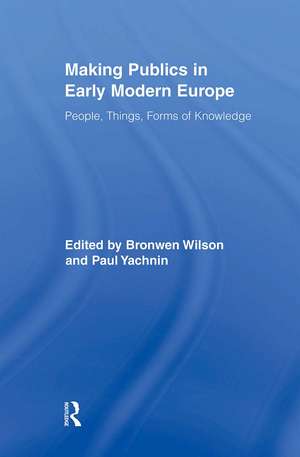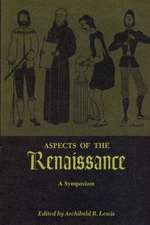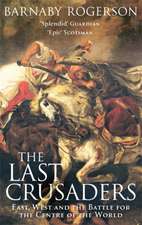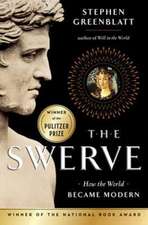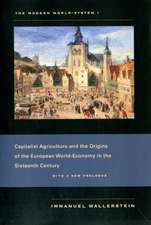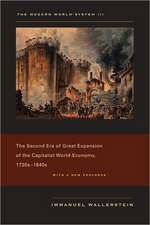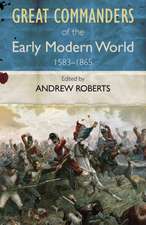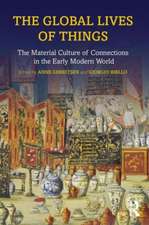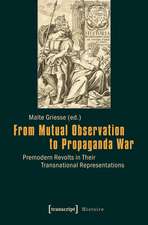Making Publics in Early Modern Europe: People, Things, Forms of Knowledge: Routledge Studies in Renaissance Literature and Culture
Editat de Bronwen Wilson, Paul Yachninen Limba Engleză Paperback – 16 mai 2011
| Toate formatele și edițiile | Preț | Express |
|---|---|---|
| Paperback (1) | 282.70 lei 43-57 zile | |
| Taylor & Francis – 16 mai 2011 | 282.70 lei 43-57 zile | |
| Hardback (1) | 700.63 lei 43-57 zile | |
| Taylor & Francis – 17 dec 2009 | 700.63 lei 43-57 zile |
Din seria Routledge Studies in Renaissance Literature and Culture
-
 Preț: 326.49 lei
Preț: 326.49 lei -
 Preț: 714.57 lei
Preț: 714.57 lei -
 Preț: 310.09 lei
Preț: 310.09 lei -
 Preț: 485.40 lei
Preț: 485.40 lei -
 Preț: 339.87 lei
Preț: 339.87 lei -
 Preț: 446.95 lei
Preț: 446.95 lei - 18%
 Preț: 1053.16 lei
Preț: 1053.16 lei -
 Preț: 443.65 lei
Preț: 443.65 lei - 18%
 Preț: 1001.90 lei
Preț: 1001.90 lei - 18%
 Preț: 1110.77 lei
Preț: 1110.77 lei -
 Preț: 278.46 lei
Preț: 278.46 lei - 18%
 Preț: 1109.21 lei
Preț: 1109.21 lei - 18%
 Preț: 1053.16 lei
Preț: 1053.16 lei -
 Preț: 389.38 lei
Preț: 389.38 lei - 31%
 Preț: 763.81 lei
Preț: 763.81 lei -
 Preț: 440.97 lei
Preț: 440.97 lei - 26%
 Preț: 764.62 lei
Preț: 764.62 lei - 13%
 Preț: 321.08 lei
Preț: 321.08 lei - 26%
 Preț: 765.01 lei
Preț: 765.01 lei -
 Preț: 433.26 lei
Preț: 433.26 lei - 18%
 Preț: 1062.26 lei
Preț: 1062.26 lei - 18%
 Preț: 1111.40 lei
Preț: 1111.40 lei - 18%
 Preț: 1105.24 lei
Preț: 1105.24 lei - 18%
 Preț: 1057.09 lei
Preț: 1057.09 lei - 18%
 Preț: 1061.22 lei
Preț: 1061.22 lei - 18%
 Preț: 1138.65 lei
Preț: 1138.65 lei -
 Preț: 387.49 lei
Preț: 387.49 lei - 18%
 Preț: 1053.92 lei
Preț: 1053.92 lei -
 Preț: 487.19 lei
Preț: 487.19 lei - 26%
 Preț: 762.57 lei
Preț: 762.57 lei -
 Preț: 416.22 lei
Preț: 416.22 lei - 18%
 Preț: 1111.55 lei
Preț: 1111.55 lei - 18%
 Preț: 1040.35 lei
Preț: 1040.35 lei - 18%
 Preț: 1000.27 lei
Preț: 1000.27 lei - 30%
 Preț: 847.73 lei
Preț: 847.73 lei - 26%
 Preț: 849.48 lei
Preț: 849.48 lei - 18%
 Preț: 1055.51 lei
Preț: 1055.51 lei - 18%
 Preț: 1050.09 lei
Preț: 1050.09 lei - 26%
 Preț: 765.77 lei
Preț: 765.77 lei
Preț: 282.70 lei
Nou
Puncte Express: 424
Preț estimativ în valută:
54.09€ • 56.63$ • 44.76£
54.09€ • 56.63$ • 44.76£
Carte tipărită la comandă
Livrare economică 07-21 aprilie
Preluare comenzi: 021 569.72.76
Specificații
ISBN-13: 9780415896085
ISBN-10: 0415896088
Pagini: 300
Ilustrații: 5 tables, 4 halftones and 1 line drawing
Dimensiuni: 152 x 229 x 16 mm
Greutate: 0.4 kg
Ediția:1
Editura: Taylor & Francis
Colecția Routledge
Seria Routledge Studies in Renaissance Literature and Culture
Locul publicării:Oxford, United Kingdom
ISBN-10: 0415896088
Pagini: 300
Ilustrații: 5 tables, 4 halftones and 1 line drawing
Dimensiuni: 152 x 229 x 16 mm
Greutate: 0.4 kg
Ediția:1
Editura: Taylor & Francis
Colecția Routledge
Seria Routledge Studies in Renaissance Literature and Culture
Locul publicării:Oxford, United Kingdom
Public țintă
Postgraduate and UndergraduateCuprins
List of Figures Acknowledgments Introduction, Bronwen Wilson and Paul Yachnin Part I: People 1. Religion Inside Out: Dutch House Churches and the Making of Publics in the Dutch Republic, Steven Mullaney, Angela Vanhaelen, Joe Ward 2. Emerging Publics of Religious Reform in the 1530s: The Affair of the Placards and the Publication of Antoine de Marcourt’s Livre des marchans, Torrance Kirby 3. Academies, Circles, "Salons" and the Emergence of the Pre-Modern "Literary Public Sphere" in Sixteenth-Century France, François Rouget 4. Pietro Aretino, Thomas Nashe, and Early Modern Rhetorics of Public Address, Wes Folkerth Part II: Things 5. Hamlet and the Social Thing in Early Modern England, Paul Yachnin 6. Petrucci’s Publics for the First Motet Prints, Julie E. Cumming 7. Cultural Relations between London and the Provincial Towns: Portraiture and Publics in Early Modern England, Robert Tittler and Anne Thackray 8. Glob(al) Visions: Globes and their Publics in Early Modern Europe, Lesley B. Cormack Part III: Forms of Knowledge 9. Richard Hakluyt and his Publics, c. 1580-1620, David Harris Sacks 10. "The Confusion of Faces": The Politics of Physiognomy, Concealed Hearts, and Public Visibility, Bronwen Wilson 11. Shakespeare’s Sonnets and the Publication of Melancholy, Michael Bristol 12. Specifying Unknown Things: The Algebra of The Merchant of Venice, Shankar Raman Publics: A Bibliographic Afterword, Yael Margalit List of Contributors Bibliography Index
Recenzii
"Highly recommended" --Choice
Descriere
The book looks at how people, things, and new forms of knowledge created "publics" in early modern Europe, and how publics changed the shape of early modern society. The focus is on what the authors call "making publics" — the active creation of new forms of association that allowed people to connect with others in ways not rooted in family, rank or vocation, but rather founded in voluntary groupings built on the shared interests, tastes, commitments, and desires of individuals. By creating new forms of association, cultural producers and consumers challenged dominant ideas about just who could be a public person, greatly expanded the resources of public life for ordinary people in their own time, and developed ideas and practices that have helped create the political culture of modernity. Coming from a number of disciplines including literary and cultural studies, art history, history of religion, history of science, and musicology, the contributors develop analyses of a range of cases of early modern public-making that together demonstrate the rich inventiveness and formative social power of artistic and intellectual publication in this period.
